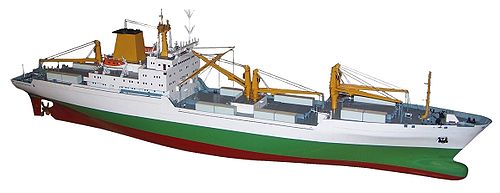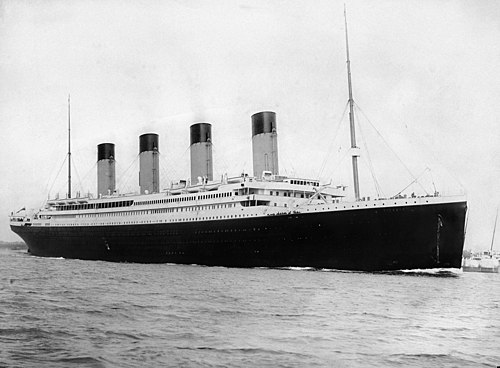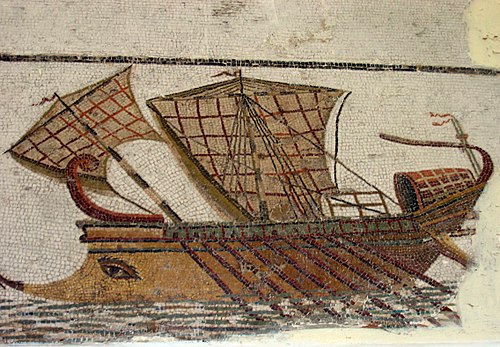Fantailnoun
Any of several birds, of the genus Rhipidura, from Asia, Australia and New Zealand.
Fantailnoun
Any of several domestic varieties of pigeon having a fan-shaped tail.
Fantailnoun
Any of several goldfish having a large fan-shaped tail.
Fantailnoun
(nautical) An overhanging deck at the stern of a ship
Fantailnoun
A small windmill mounted at right angles to the sails, at the rear of the windmill, used to turn the cap automatically to bring it into the wind.
Fantailnoun
A brimmed hat with just the back of the brim turned up.
Fantailnoun
A variety of the domestic pigeon, so called from the shape of the tail.
Fantailnoun
an overhang consisting of the fan-shaped part of the deck extending aft of the sternpost of a ship
Fantailnoun
a fan-shaped tail or end.
Fantailnoun
the overhanging part of the stern of a boat, especially a warship
Fantailnoun
the fan of a windmill.
Fantailnoun
a domestic pigeon of a broad-tailed variety.
Fantailnoun
a flycatcher with a long tapering tail that is often fanned out, found mainly in SE Asia and Australasia.
Fantail
Fantails are small insectivorous birds of Australasia, Southeast Asia and the Indian subcontinent belonging to the genus Rhipidura in the family Rhipiduridae. Most of the species are about 15 to 18 cm long, specialist aerial feeders, and named as , but the Australian willie wagtail is a little larger, and, though still an expert hunter of insects on the wing, concentrates equally on terrestrial prey.
Shipnoun
A water-borne vessel generally larger than a boat.
Shipnoun
A vessel which travels through any medium other than across land, such as an airship or spaceship.
Shipnoun
A sailing vessel with three or more square-rigged masts.
Shipnoun
A dish or utensil (originally fashioned like the hull of a ship) used to hold incense.
Shipnoun
(cartomancy) The third card of the Lenormand deck.
Shipnoun
(fandom) A fictional romantic relationship between two characters, either real or themselves fictional.
Shipverb
(transitive) To send by water-borne transport.
Shipverb
(transitive) To send (a parcel or container) to a recipient (by any means of transport).
Shipverb
(ambitransitive) To release a product to vendors; to launch.
Shipverb
(ambitransitive) To engage to serve on board a vessel.
Shipverb
(intransitive) To embark on a ship.
Shipverb
To put in its place.
Shipverb
(transitive) To take in (water) over the sides of a vessel.
Shipverb
(transitive) To pass (from one person to another).
Shipverb
To go all in.
Shipverb
(sports) To trade or send a player to another team.
Shipverb
(rugby) To bungle a kick and give the opposing team possession.
Shipverb
(fandom) To support or approve of a fictional romantic relationship between two characters, either real or themselves fictional, typically in fan fiction.
Shipnoun
Pay; reward.
Shipnoun
Any large seagoing vessel.
Shipnoun
Specifically, a vessel furnished with a bowsprit and three masts (a mainmast, a foremast, and a mizzenmast), each of which is composed of a lower mast, a topmast, and a topgallant mast, and square-rigged on all masts. See Illustation in Appendix.
Shipnoun
A dish or utensil (originally fashioned like the hull of a ship) used to hold incense.
Shipverb
To put on board of a ship, or vessel of any kind, for transportation; to send by water.
Shipverb
By extension, in commercial usage, to commit to any conveyance for transportation to a distance; as, to ship freight by railroad.
Shipverb
Hence, to send away; to get rid of.
Shipverb
To engage or secure for service on board of a ship; as, to ship seamen.
Shipverb
To receive on board ship; as, to ship a sea.
Shipverb
To put in its place; as, to ship the tiller or rudder.
Shipverb
To engage to serve on board of a vessel; as, to ship on a man-of-war.
Shipverb
To embark on a ship.
Shipnoun
a vessel that carries passengers or freight
Shipverb
transport commercially
Shipverb
hire for work on a ship
Shipverb
go on board
Shipverb
travel by ship
Shipverb
place on board a ship;
Ship
A ship is a large watercraft that travels the world's oceans and other sufficiently deep waterways, carrying goods or passengers, or in support of specialized missions, such as defense, research, and fishing. Ships are generally distinguished from boats, based on size, shape, load capacity, and tradition.










































